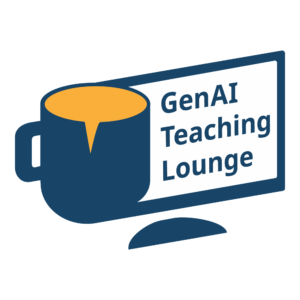Workshop 1: Securing Your Own Oxygen Mask First: Employee Wellness as the Foundation For Student Wellness
February 10, 2026 | 10:00 a.m.–11:30 a.m.
As faculty and staff in higher education, we can only meet students’ accessibility needs when our own needs are met first. Yet cultural, institutional, and personal barriers often impede our self advocacy, leading to burnout and leaving us ill-equipped to create meaningful community care in our classrooms.
This 90-minute, participatory workshop is the first in a two-part series exploring the vital connection between employee and student flourishing. Through stories and reflective practices, we’ll:
- Examine how common accessibility barriers can make getting our needs met feel impossible
- Develop concrete short- and long-term plans for self- and community-advocacy around wellness
This workshop sets the foundation for Workshop 2, where we’ll collaborate on strategies for securing the masks for our students. It is designed for disabled, neurodivergent, and chronically-ill faculty and student services staff, though adaptable for anyone seeking to balance their accessibility needs with those of the populations they serve.
Workshop 2: Then Securing the Mask for Our Students: Planning for Collaborative Care in Higher Education
February 24, 2026 | 10:00 a.m.–11:30 a.m.
Ready to shift from individualized accessibility to collaborative care? This workshop helps you develop practical strategies for balancing your accessibility needs with those of your students.
Come prepared with a real ‘sticky situation’ from your context – a moment when your accessibility needs clashed with students’, or where you anticipate future challenges. Through stories and hands-on collaboration, we’ll:
- Reframe relational dynamics in our situations to strategize solutions rooted in collaborative care
- Leave with one concrete strategy and a plan for how to implement it in your own context to help ensure both you and your students have your oxygen masks secured (or better yet, create conditions that keep the plane from going down in the first place!)
This 90-minute workshop is the second in our two-part series on employee and student flourishing. While participation in the first workshop is strongly advised, it’s not required. Don’t have a sticky situation? Don’t worry. You’ll be able to collaborate with others to ensure you can still participate meaningfully in the experiential learning.
Register Now!
These sessions may be recorded, archived, and shared after the event.
About the Facilitator
Natalie Wigg-Stevenson is Associate Professor of Theology and Contextual Education at Emmanuel College, Victoria University (University of Toronto). While her research focuses on ethnographic approaches to theology, her pedagogical passion lies in decolonizing and ‘cripping’ classrooms through more relationally-rooted teaching and learning design. As a neurodivergent scholar living with chronic illness, she brings both personal insight and professional expertise to helping faculty and staff in higher education not just survive but thrive in their work with students.
Supporting Neurodiversity in Post-Secondary Education Series
February Focus: Supporting Neurodiversity in Post-Secondary Education Series (blogpost)
NeuroChats: Conversations Towards Inclusive Campuses (podcast series)
Designing for Inclusive Learning with AI, February 5, 2026
From Self-Advocacy to Collaborative Care: Supporting Neurodivergent Wellness in Higher Education, February 10 and 24, 2026
Bridging the Gap: Supporting Neurodivergent Learners from Campus to Career, February 19, 2026

Session Description
This workshop offers a brief but meaningful reflection on disability rights through an Indigenous lens, drawing from traditional Nɬeʔkepmx ecological knowledge. It challenges Western deficit-based models and affirms the strength, knowledge, and interdependence of all community members, including those living with disabilities. Participants will gain insight into how Indigenous knowledge systems hold space for diverse bodies, minds, and spirits, and how this informs a decolonial approach to accessibility in post-secondary spaces.
Register Now!
This session will be recorded, archived, and shared after the event.
About the Facilitator
Sue Sterling-Bur is a member of the Nłeʔkepmx and Stó:lō Nations and sits with the Duntem’yoo (Bear) Clan in Bahlats with Nadleh Whut’en from the Carrier Sekani Nation. She is a strong advocate for the advancement of Indigenous Rights and educational opportunities for all.
Sue holds a master’s degree in social work and is a Ph.D. candidate at The University of British Columbia Okanagan, where she also serves as the Manager of Indigenous Strategies and Initiatives. Her doctoral research offers an Indigenous perspective on the systems of belief around giftedness in children with disabilities. Her research is grounded in Nłeʔkepmx Spilahem and Speta’kl stories and aims to identify the ethics, values, and beliefs that guide working with and supporting Indigenous people with disabilities.
Sue’s experience includes supporting Indigenous communities and agencies in B.C. to develop and implement programming for Indigenous children; serving as a Child & Youth Mental Health Advisor for Doctors of B.C.; acting as a Provincial Child Care Advisor for the Ministry of Children and Family Development, serving as Vice President for Students for the Nicola Valley Institute of Technology; sitting on the Board of the BC Aboriginal Child Care Society, and more recently, being appointed co-lead of the Idigenous Research stream at the Canadian Institution for Inclusion and Citizenship.
2025-26 Accessibility Bites Series
- Accessibility Bites: Introduction to Web Accessibility, August 28, 2025
- Accessibility Bites: Supporting Post-Secondary Students with ADHD, September 25, 2025
- Accessibility Bites: Let’s Talk about Learning Disabilities, October 30, 2025
- Accessibility Bites: The Gift of Dyslexia, November 27, 2025
- Accessibility Bites: Access Friction, December 11, 2025
- Accessibility Bites: UDL 3.0 in Practice, January 29, 2026
- Accessibility Bites: An Indigenous Lens on Disability Rights, February 26, 2026
For recordings and resources from previous Accessibility Bites workshops, visit the Accessibility Bites Pressbook.
About the Session
This session will explore considerations for neurodivergent learners when designing assessments and activities for different delivery modalities; on-campus, online, and hybrid. The session goes beyond a discussion of ADHD to explore a more inclusive neurodivergent awareness in our pedagogy and design, such as dyscalculia, dysgraphia, generalized anxiety disorder, and C-PTSD among others.
The workshop will give participants an opportunity to apply strategies to their specific course design and delivery context to reinforce the need for contextual neurodivergent awareness and not simply a checklist.
Learning Outcomes
- Explain contextual and holistic support needs for
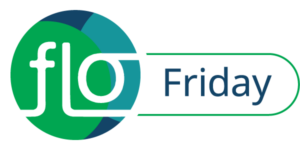 neurodivergent learners in assessment and activity design
neurodivergent learners in assessment and activity design
- Develop strategies to support neurodivergent learners in pedagogical design
- Examine opportunities to advocate for a contextual approach to accessible and inclusive assessment design in your institutions.
Register Now!
This session may be recorded, archived, and shared after the event.
About the Facilitator
Dr. Ann Gagné (she/her) is Senior Educational Developer, Accessibility & Inclusion at Brock University. She has worked in higher education for over 22 years. Her work focuses on the need for accessible pedagogies through holistic awareness of disabled learners, faculty, and staff lived experiences. She has facilitated workshops and keynotes on accessible pedagogy, accessible event design, accessible social media, and trauma-aware UDL. In March 2023, she started her own podcast, Accessagogy, which talks about accessibility and pedagogy in short (under 15-minute) episodes.
About the Session
This session explores how generative AI can support more inclusive teaching through the lens of Universal Design for Learning (UDL). Through live demonstrations, practical activities, and collaborative discussion, you’ll experiment with AI tools to redesign lessons, activities, or resources that reflect UDL principles.
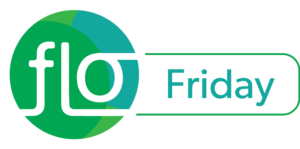
This workshop is not an introduction to GenAI or UDL, but an opportunity to explore how generative AI can help you design flexible, accessible, and learner-centered learning experiences. You’ll leave with a draft product tailored to your own context, and new strategies for using AI to reduce barriers and support diverse learners.
Register Now!
This session may be recorded, archived, and shared after the event.
About the Facilitator
Kelly Fyke is a Teaching and Learning Specialist at College of the Rockies with 20 years’ experience spanning K–12 teaching, international education, and post-secondary educational development. Her work focuses on generative AI in education, Universal Design for Learning, and inclusive teaching. Kelly is passionate about empowering educators, creating equitable learning spaces, and supporting innovation that helps students thrive. Connect with Kelly on LinkedIn.
We’re excited to introduce the GenAI Teaching Lounge: an informal, virtual space where educators can gather over a hot drink to explore teaching ideas with Generative Artificial Intelligence (AI).
Curious about using AI tools to support assessment design? Wondering how to centralize student voices when integrating AI into coursework? Or simply want to share your own stories and tea with others? The Lounge is your space to ask questions, exchange ideas, and learn with colleagues.
No lectures, no recordings—just conversation, connection, and curiosity. Join us for a 45-minute drop-in session designed to generate practical takeaways and strengthen our teaching community.
Sessions
Sessions will be held from 2:00–2:45 p.m. PT:
- October 21, 2025
- November 25, 2025
- January 13, 2026
- February 17, 2026
- March 10, 2026
Register Now!
This session will not be recorded.
Hosts
Gwen Nguyen (she/her) is a Learning + Teaching Advisor at BCcampus supporting the adaptation and evolution of teaching and learning practices in post-secondary education through collaboration, innovation, and digital technologies. Gwen worked as a learning experience designer at the University of Victoria (UVic), supporting educators with developing and delivering face-to-face, hybrid and online courses. She has also worked as a university lecturer and researcher at UVic and the Kanazawa Institute of Technology in Japan. Gwen holds a PhD in education studies and an MA in applied linguistics. Recently, Gwen has cultivated a keen interest in pedagogical strategies that ethically and creatively incorporate AI into teaching and learning.
Britt Dzioba (she/her) is a Learning + Teaching Advisor at BCcampus where she works to support educators in developing their digital skills through resource development. As a neurodivergent educator, she is passionate about helping faculty create more inclusive learning environments that support neurodivergent students. Britt holds a Master of Education from the University of British Columbia, specializing in adult learning. Her graduate research focused on digital literacy education in community-based programs.
Helena Prins (she/her) is a Learning + Teaching Advisor at BCcampus, where she coordinates the Facilitating Learning Online (FLO) portfolio. She began her career as a high school teacher in South Africa. Over the past 20 years, she has taught students of all ages and stages on four continents. A golden thread throughout her career has been breaking down barriers to learning. Prior to joining BCcampus in 2020, she worked as a career learning and development advisor at Royal Roads University.
About the Session
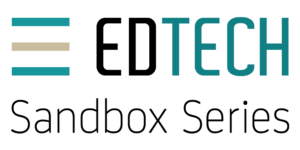
Workshop participants will explore how AI can support literature searching within literature reviews and examine ethical issues such as plagiarism, privacy, and research integrity. Participants will gain a foundational understanding of key AI-powered literature searching tools and learn how to evaluate their outputs for accuracy, relevance, and bias through hands-on activities.
By the end of this workshop, participants will be able to:
- Use AI tools effectively for literature searching
- Identify appropriate use cases for AI tools across the literature review process
- Critically evaluate AI-generated outputs for accuracy, relevance, and potential biases
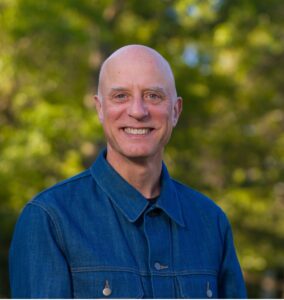
- Recognize ethical considerations and limitations of using AI for literature reviews
Register Now!
This session will be recorded, archived, and shared after the event.
About the Facilitator
Justin Harrison is a PhD candidate in the Faculty of Education at the University of Victoria focusing on media literacy, news literacy, and their intersections with civic engagement and political polarization. He has over twenty years professional experience as an academic research librarian focusing on information literacy, and currently holds the position of Engagement & Learning Librarian at the University of Victoria Libraries.
About the Series
Discover the BCcampus EdTech Sandbox Series!
In these 90-minute workshops, expert leaders will introduce and demonstrate cutting-edge, open, and free, or low-cost educational technology tools aligned with the B.C. Post-Secondary Digital Literacy Framework. Participants will experiment with tools, work with fellow educators to review features of the tools, gain insights into teaching activities, and discover ways to integrate these tools into courses.
Focus Areas for 2025-2026
- The AI Sandbox: a space dedicated to experimenting with, and reviewing, artificial intelligence tools and applications in educational settings.
- Other Learning Technologies: a space to explore, experiment, and review emerging learning technologies beyond AI, highlighting their potential impacts and practical applications.
EdTech Sandbox Series Sessions
-
- September 10, 2025 – Choose Your Own Adventure! Dynamic Branching Scenarios and Game Maps With H5P and AI Tools
- October 8, 2025 – The Intelligent Notebook: Become a Knowledge Expert With NotebookLM
- October 17, 2025 – [Special EdTech Sandbox] Remote Proctoring Through an Ethical Lens: the Case Against Surveillance
- November 26, 2025 – Claude vs. ChatGPT: Choosing the Right AI for the Job
- January 21, 2025 – Build Your Own Teaching Bot: My Story of Creating CITE GPT as a Teaching Tool
- March 3, 2026 – Literature Searching with Artificial Intelligence

The British Columbia Open Education Community (BCOEC) welcomes members from the post-secondary sector in British Columbia and the Yukon. This community convenes monthly in virtual gatherings, fostering an environment for sharing insights, providing support, and engaging in discussions about the challenges, best practices, and current issues within open education.
Register now!
Recordings and transcripts available from past meetings: B.C. Open Education Community (Playlist)

The British Columbia Open Education Community (BCOEC) welcomes members from the post-secondary sector in British Columbia and the Yukon. This community convenes monthly in virtual gatherings, fostering an environment for sharing insights, providing support, and engaging in discussions about the challenges, best practices, and current issues within open education.
Register now!
Recordings and transcripts available from past meetings: B.C. Open Education Community (Playlist)
About the Session
Are you interested in open pedagogy and teaching practices supporting social justice? Join this webinar to learn from a study examining faculty experience using open pedagogy to support social justice in their online classes.
While open pedagogy is often assumed to support social justice, this is not always the case. This webinar will provide insights on how faculty members at a B.C. post-secondary institution conceptualize social justice and how they put it into practice. Participants will also learn about a social justice-informed model of open pedagogy.
Register Now!
This session will be recorded, archived, and shared.
About the Facilitator
Melissa Ashman is an instructor of applied communications, public relations, and entrepreneurial leadership at Kwantlen Polytechnic University. An advocate for all things open, she has adapted and created open textbooks, developed and used open pedagogy assignments and practices, and completed research on open education. In 2025, she completed her doctor of education in distance education from Athabasca University. Her dissertation examined the intersection of open pedagogy, social justice, and online classes.

The British Columbia Open Education Community (BCOEC) welcomes members from the post-secondary sector in British Columbia and the Yukon. This community convenes monthly in virtual gatherings, fostering an environment for sharing insights, providing support, and engaging in discussions about the challenges, best practices, and current issues within open education.
Register now!
Recordings and transcripts available from past meetings: B.C. Open Education Community (Playlist)

